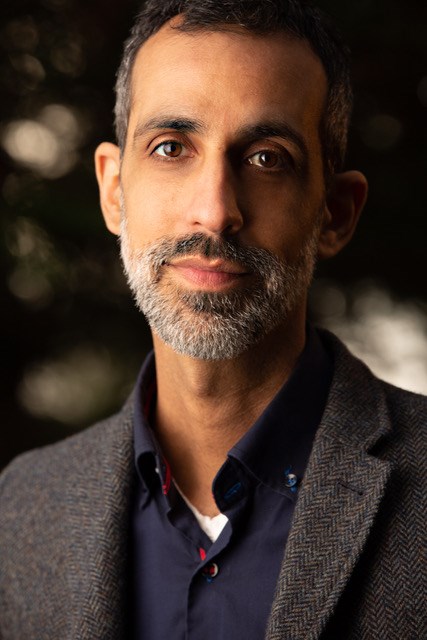How are you feeling about religion and spirituality these days? Feeling a little lost?
Well, islander Shahar Rabi is stepping into the fray, taking on globalization and the complexity of today’s world, trying to help people find paths to a new collective spirituality.
Earlier this month, Rabi launched an Indiegogo campaign to raise money to publish his new book on the future of community, culture and religion.
This is Rabi’s first book, though he’s written a couple of masters theses and a PhD dissertation (on ecology and globalization.)
“This is much more of a personal piece,” he says. “It’s more edgy because I’m writing about religion, the religions of tomorrow and the future of God.”
The therapist, assistant professor at Adler University, former clinical program director at the Orchard and father of two, has lived on Bowen for the past seven years.
“I make the joke that I am talking about everything that nobody wants to hear,” he laughs. “I could probably write a book about parenting that would be much more successful.”
But Rabi says that he felt he had to write this book. That even on Bowen, “The disease of loneliness is a real thing.
“I’m saying that we’re at this interesting place. That people have a lot of access to personal growth and there are fantastic books about how to become a mature person, how to heal.
“My curiosity is about what happens beyond that. Because a lot of us can’t go back to traditions, to religion, to structures that don’t work for us anymore. There are not a lot of structures to take us beyond the individual journey, back into a collaborative-collective space.”
Rabi says that he’s interested in the structures that could help people find the context and depth with one another that they no longer feel they can get from a church.
But Rabi doesn’t see this book as an instruction manual.
“I don’t think I can give answers,” he says. “I think nobody can give answers anymore because [the world is] too complex and too diverse. So each community has to come up with their own answers.
“[The book]’s like an open source code, where people can take the code that I wrote and then do whatever they want with it.”
Part of what Rabi is trying to remedy is polarization.
“If you look at culture right now, you’ll notice that there are a lot of attempts to move collaboratively but also, in that movement, there’s a lot of ‘us versus them.’”
He says that in the media, on social media, in politics, there’s often a lack of nuance.
“There is a lot of if you don’t agree with us you’re our enemy.”
Again, collaboration and listening to peoples’ fears, rather than dismissing them is key. “This the dislocation that’s happened because of globalization. The sense of isolation, the radicalization, the ethnocentricity, all of these phenomena are symptoms of a system that can’t handle complexity on a social and cultural level,” he says.
“Beyond that there giant forces that are like waves [economics and the like.] We lost that battle in a way. But it doesn’t mean that we can’t, in our small communities, still find in connection and in collaboration, meaning and context.
“Reality is always moving to more dialogue. Into more understanding and more empathy. And when people are grounded in themselves and grounded in whatever their perception of reality is, there is goodness. There’s an acceptance. There’s open mindedness. It’s built into us. From the beginning of time. You don’t have to do anything, you just have to not put blocks in the way.”
“Trees know how to grow to the sun.”
There’s a month left in Rabi’s fundraising campaign here.



